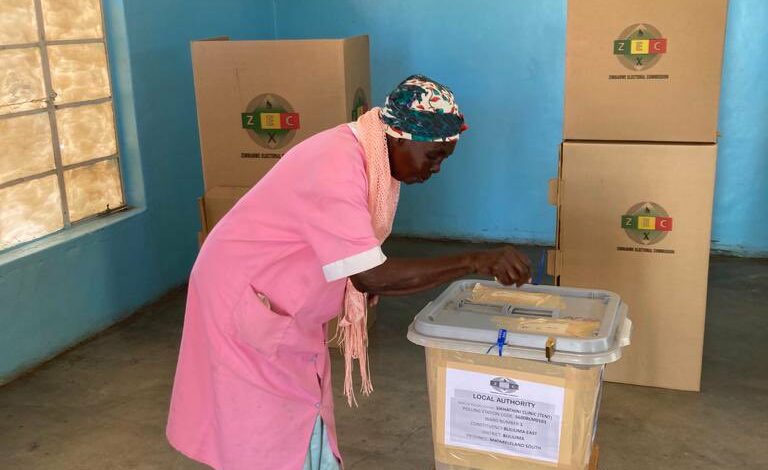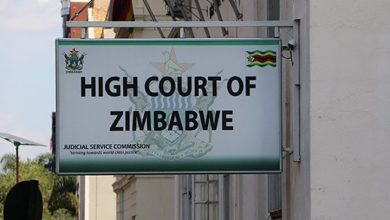Zimbabwe’s upcoming elections in jeopardy

A leading political scientist has warned that Zimbabwe’s upcoming elections on August 23 may not be legal due to the bending of electoral rules.
Professor Jonathan Moyo said that an election not based on the rules as they were at the beginning of the election cannot be considered credible.
His remarks follow the publication of Statutory Instrument (SI) 140A of 2023, which extends the submission deadline of postal voting materials to the Zimbabwe Electoral Commission (ZEC) from August 9 to August 20, 2023.
This amendment was made to accommodate delays caused by the Nomination Court challenges. However, Moyo argues that this is a “gross” violation of Section 157(5) of Zimbabwe’s Constitution, as after an election has been called, no amendment of the Constitution or any other law relating to the conduct of elections shall be made.
Last week, ZEC Chief Elections Officer Utloile Silaigwana stated 17 483 registered voters were eligible to vote by post because they would be on official duty in or out of the country. Still, due to ongoing nomination disputes, printing of ballot papers had to be suspended, affecting postal ballot dispatch, necessitating SI 140A of 2023 to amend Section 75(1)(d) of the Electoral Act.
Prof Moyo, on the other hand, believes SI 140A is illegal and unconstitutional because ZEC lacks the power to amend the Electoral Act during or after an election.
“Neither Parliament nor the Government can lawfully amend the Electoral Act or amend or make any other law that affects elections after the proclamation of an election and have the law apply to that election,” said the political scientist.
Prof Moyo said SI 140A was neither transparent nor in accordance with the law as its full details were “not readily available in the public domain; and worse, ZEC has not published that SI on its website, in violation of Section 239 of the Constitution which mandates it to conduct elections transparently.”
He went on to say that SI 140A could not sufficiently fix Zimbabwe’s election dilemma, noting three critical issues that had a detrimental impact on the country’s electoral status.
“(1) Since ballot papers have been printed illegally in violation of Section 52A of the Electoral Act; and since the presidential ballot paper and the ballot papers of some National Assembly constituencies are yet to be printed; and, further, since postal ballot papers are yet to be distributed to 17 483 registered voters who qualified for postal voting, by when will the postal ballot papers be sent to the 17 483? How much time will they have to vote and to send back their votes to reach the chief elections officer in Harare by three days before polling day, meaning by 20 August 2023?
(2) If the Chief Elections Officer will now receive the postal votes three days before polling day, when will the 210 constituency election officers now receive these postal votes?
(3) Critically and more importantly, when will presiding officers at polling stations now receive the postal votes where they are counted to ensure that they’re counted together with the rest of the votes at the relevant polling station where the postal voters are registered?”
Prof Moyo said in light of these important points, ZEC was silent on the critical requirements of Section 76 subsections 4, 5 and 6 of the Electoral Act.
Another concern was ZEC’s opaque approach regarding the printing of ballot papers with Prof Moyo suggesting ZEC may have printed ballot papers secretly, violating Section 54A of the Electoral Act.
“Thus far, ZEC has not provided political parties and candidates contesting the 23 August election or election observers, information on where and by whom the ballot papers for the election have been or are being printed,” he said.
He added ZEC has also not provided “the total number of ballot papers that have been printed for the election and number of ballot papers to be distributed to each polling station.”
“A lawful harmonised general election on 23 August 2023 is simply no longer possible. Zimbabwe is now under the grip of an unprecedented election crisis,” Prof Moyo said.
He, however, acknowledged that ZEC had not authored this election crisis but was caused by opposition political parties, election candidates and “worst of all, by the courts – that have inexplicably failed to timeously resolve the nomination disputes before them.”
The political scientist stressed elections were bound by rules that cannot be broken.
“Once such rules are broken, and especially when or where they are substantially broken as to have a real risk or possibility of affecting the credibility or result of an election, then that election must not go on as if everything is alright,” Prof Moyo said.
David Coltart also concurred it was illegal for ZEC to say an SI was issued changing the electoral law.
“If this is the case, it is illegal as the Constitution forbids any change to the electoral law after elections have been called,” Coltart said.
SI 140A of 2023 becomes the second law introduced after an election proclamation as the government also issued SI 114 of 2023 to correct an amended Section 268 of the Zimbabwean Constitution.






